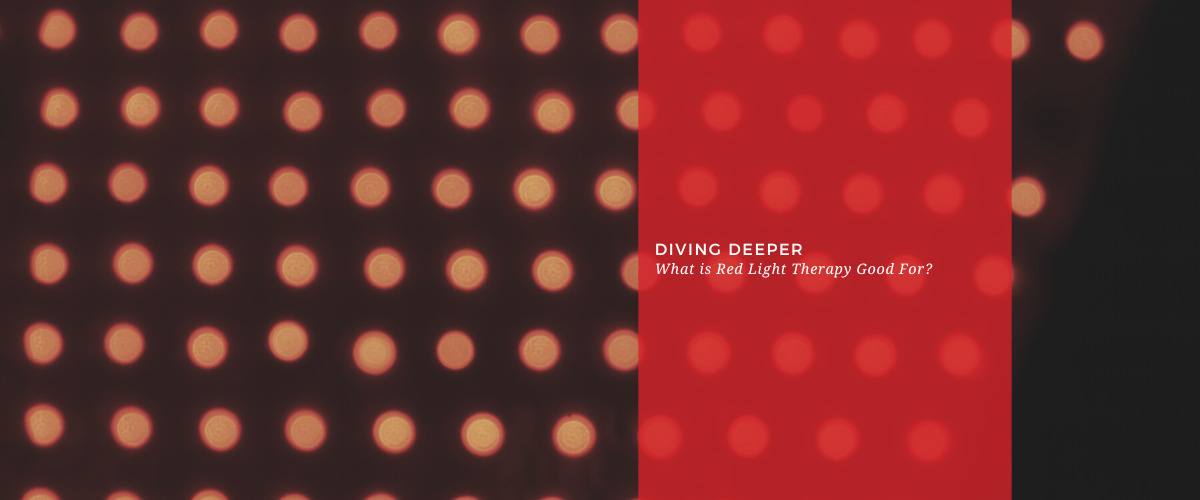With over 1 million orders

Diving Deeper: What is Red Light Therapy Good For?
Red light therapy (RLT) is a fascinating blend of innovation and ancient understanding, finding its origins in both modern technology and age-old natural phenomena. Its broad range of benefits, substantiated by credible scientific research, has made it an emerging topic in the wellness industry. This piece will delve into what red light therapy is and the many benefits it offers.
What is Red Light Therapy?
Red light therapy involves the use of low-level red light wavelengths emitted directly through the skin.
Unlike more intense forms of light treatments such as laser or UV, RLT doesn’t cause any harm to the skin surface. According to a study published in the Journal of Photochemistry and Photobiology B: Biology, RLT aids cellular function and can result in healthier skin cells, promoting healing and alleviating inflammation.

What is Red Light Therapy Good For?
Backed by a growing body of research, RLT is proving its mettle in a range of applications, from skincare enthusiasts to professional athletes.
Skin Health and Anti-Aging
One of the most well-known benefits of RLT is its potential to rejuvenate the skin. A study in the Journal of Clinical and Aesthetic Dermatology found that subjects exposed to RLT experienced significantly improved skin complexion and increased collagen.
Wound Healing
Red light therapy has been observed to accelerate the body's natural healing processes. Peer reviewed studies show how RLT can enhance the proliferation of fibroblasts and collagen, crucial for wound healing.
Muscle Recovery and Performance
Athletes might find RLT especially interesting. A study showed that RLT could reduce muscle fatigue and soreness post-exercise, potentially aiding faster recovery.
Pain and Inflammation Reduction
Chronic conditions such as rheumatoid arthritis and osteoarthritis can be debilitating. The Lasers in Medical Science journal published research indicating RLT's potential to reduce pain and inflammation in such conditions.
Hair Growth
Those battling with alopecia (hair loss) might find hope in RLT. Research in the Lasers in Surgery and Medicine journal showed that RLT could stimulate hair follicles, promoting growth in individuals with androgenic alopecia.
Mood and Sleep Enhancements
RLT might also be beneficial for those grappling with sleep disorders or mood imbalances. A study in the Journal of Affective Disorders points to RLT's potential in improving sleep quality and mood by influencing circadian rhythms and melatonin production.
Safety and Side Effects
Like any treatment, RLT is not devoid of side effects, though they are generally minimal. Users might experience mild irritation or redness, but significant adverse effects are rare. However, it's crucial to use RLT devices that adhere to the recommended guidelines and seek consultation from professionals before starting the therapy.
Red light therapy is continuously evolving, with ongoing research uncovering even more potential benefits. From boosting skin health to improving mood, RLT offers a promising non-invasive alternative for those seeking natura solutions for various health and aesthetic concerns. As always, those interested should consult with healthcare professionals and ensure they are using safe and approved devices.
And if you want to learn more about what red light therapy is good for and how it helps arthritis and pain management, be sure to check out our other articles below:
Shining a Light on Wellness: The Benefits of Red Light Therapy
Beyond the Glow: Red Light Therapy for Pain Management
For those who want to explore treatments or are looking for more ways to manage arthritis symptoms, be sure to check out Dr. Arthritis's range of products.
SHOP NOW
